| Supreme Court Chief Justice Jo Hee-de closes his eyes during a parliamentary inspection by the Legislation and Judiciary Committee at the National Assembly in Seoul, Monday. (Yonhap) |
Supreme Court Chief Justice Jo Hee-de voiced his opposition to forcing judges to testify about trials, saying it could undermine their ability to rule according to the Constitution, the law and their conscience.
Jo's remarks came as he attended a parliamentary hearing for the annual Assembly audit to grill him over suspicions he interfered in the June 3 presidential election.
"In a rule-of-law country with a separation of powers, it is rare to find instances where judges are called to testify or subjected to oversight regarding judicial matters," he said.
He went on to criticize the Assembly, noting that it has traditionally avoided summoning the chief justice as a witness during audits out of respect for the separation of powers and judicial independence, which he stressed as principles seen as vital to democracy and the rule of law.
“I am here today, following long-standing practice, to deliver opening and closing remarks as chief justice.”
The National Assembly's Legislation and Judiciary Committee, chaired by Democratic Party Rep. Choo Mi-ae, had summoned Jo as a witness. Jo submitted a letter declining to appear in that capacity but attended to give an opening statement.
Jo added that Chon Dae-yeop, head of the National Court Administration, would respond to questions on his behalf and that he would make additional comments at the end of the audit if necessary.
Jo stayed on after delivering his "opening speech" as Choo allowed seven lawmakers to question him, but he remained silent. Choo also emphasized that Jo was not obligated to answer, since he had declined to appear as a witness.
The parliamentary session grew tense as lawmakers from rival parties exchanged barbs over his presence. The People Power Party urged him to leave, citing constitutional precedent, while the Democratic Party of Korea insisted he stay to address questions about the court’s recent rulings.
Rep. Na Kyung-won of the People Power Party said that summoning the chief justice broke convention and violated the separation of powers. “If this is to clear the president’s name, then summon the president and prime minister too,” he added.
Democratic Party Rep. Kim Yong-min argued that the situation warranted exceptional measures, saying, “Judicial independence is important, but the National Assembly Act also allows questioning when necessary.”
Jo has come under scrutiny following allegations that he told then-Prime Minister Han Duck-soo that he would handle the case involving Lee Jae Myung — then the Democratic Party's presidential candidate — if it reached the top court. Han, who served under former President Yoon Suk Yeol, declared his own short-lived presidential bid following Yoon’s ouster.
The case centered on whether Lee violated election law by making false statements while campaigning in 2021, when he said he did not personally know the late Kim Moon-ki, a key figure in the Seongnam Development Corp. scandal. Lee served as mayor of Seongnam, Gyeonggi Province, from 2010 to 2018, during which the project was pursued.
Prosecutors indicted Lee in 2022 after presenting photos and audio recordings suggesting he and Kim had played golf together. In February 2024, a lower court found Lee guilty and sentenced him to one year in prison with a two-year suspension.
An appellate court overturned the ruling in April, saying Lee’s statement was a subjective opinion. Prosecutors appealed and the Supreme Court — with 10 of 12 justices concurring — reversed the acquittal and returned the case to the lower court in May.
The court delayed its final decision on the case, citing the need to ensure equal opportunity in the election. Lee won the presidential election on June 3.
Although the case remains pending, a sitting president cannot be prosecuted except in cases of insurrection or treason under the Constitution.
Democratic Party lawmakers argued during the audit that the Supreme Court's decision, made just weeks ahead of the vote, was intended to influence the outcome. Rep. Seo Young-kyo said, “On April 22, Jo convened the full bench. On the 23rd, the justices had dinner. And on the 24th, they voted. It was clearly aimed at blocking Lee.”
Rep. Cho Bae-sook of the People Power Party said reference witnesses must give consent and requested that Jo be excused. Rep. Joo Jin-woo added, “If what Democratic Party lawmakers are seeking is a retrial of (President) Lee (Jae Myung)'s case, where is the defendant? Bring Lee here. Why are only his lawyers speaking?”
Jo left the session after Choo declared a recess, saying he would return for closing remarks. The audit then continued with briefings from other judiciary-affiliated agencies, including the Judicial Policy Research Institute, the Supreme Court Library and the Judicial Training Institute.
Jo’s appearance at the Assembly on Monday marked his second since Sept. 30, when he attended a parliamentary hearing over the same allegation, becoming the first sitting chief justice to do so.













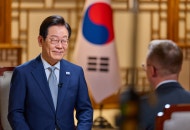
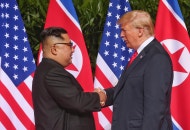

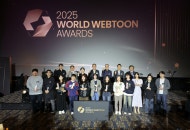
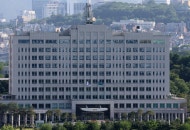
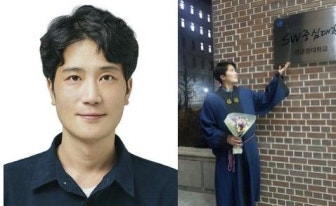


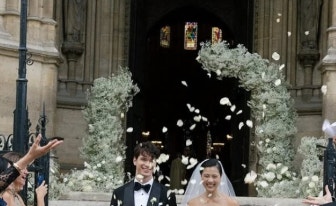















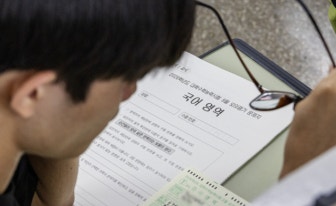

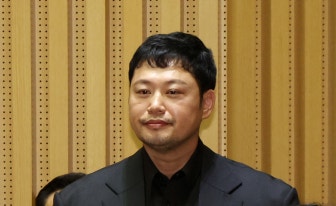


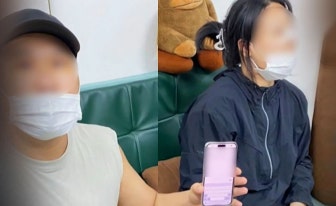


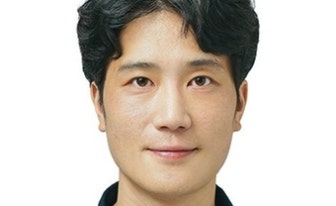








.png?type=nf190_130)


.png?type=nf190_130)